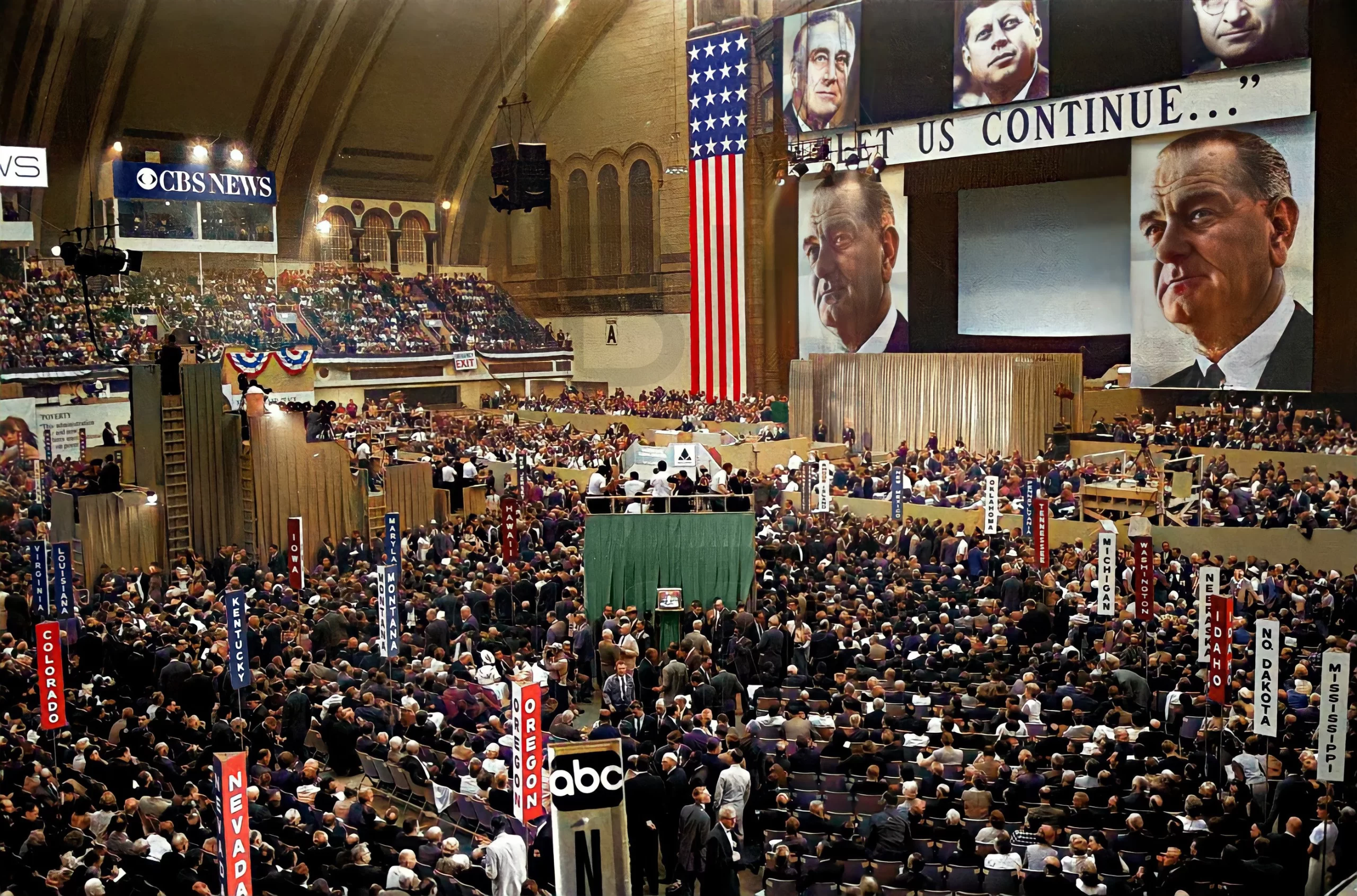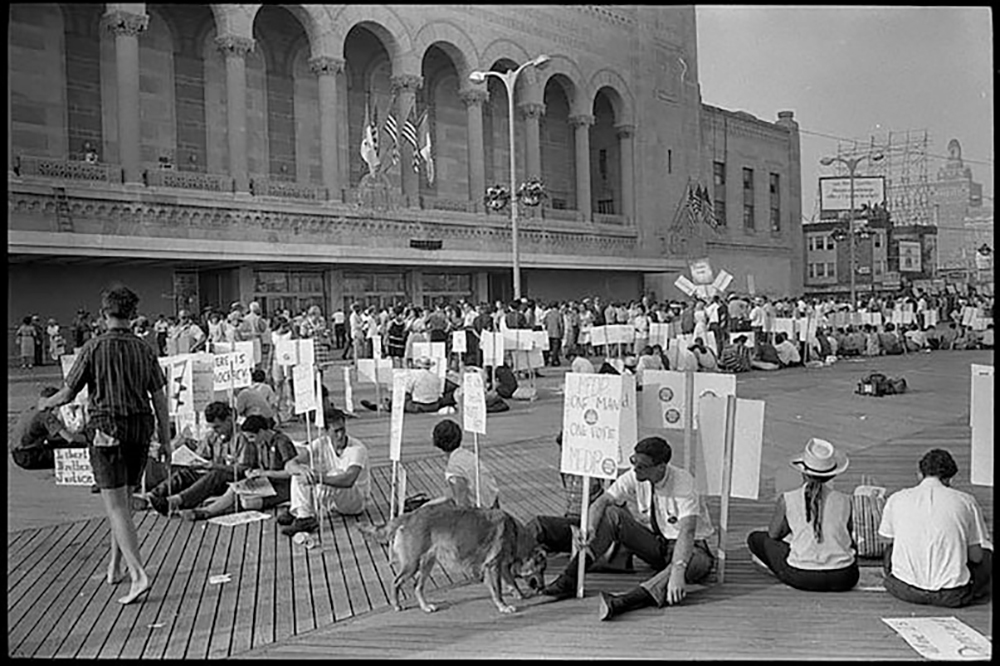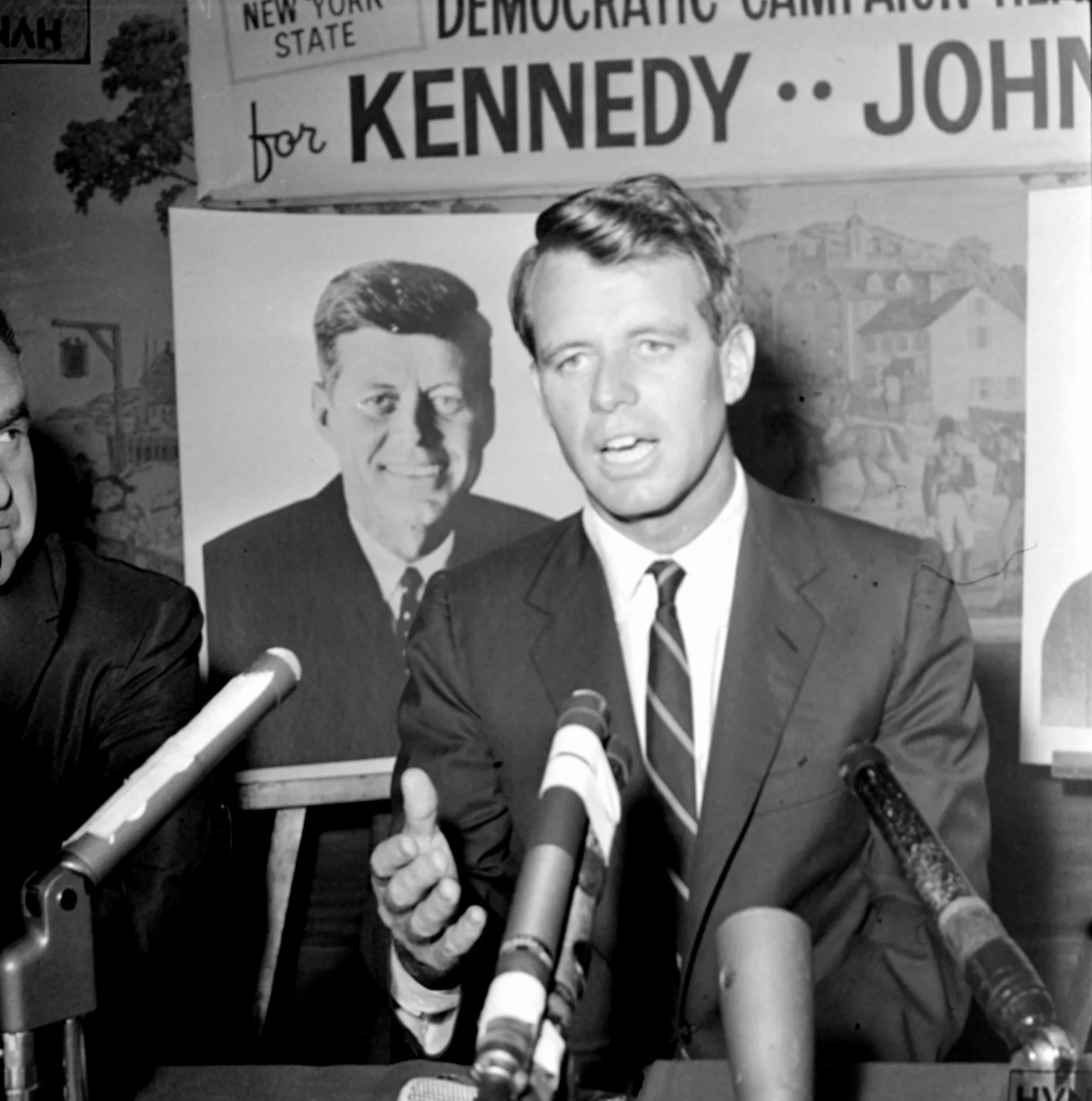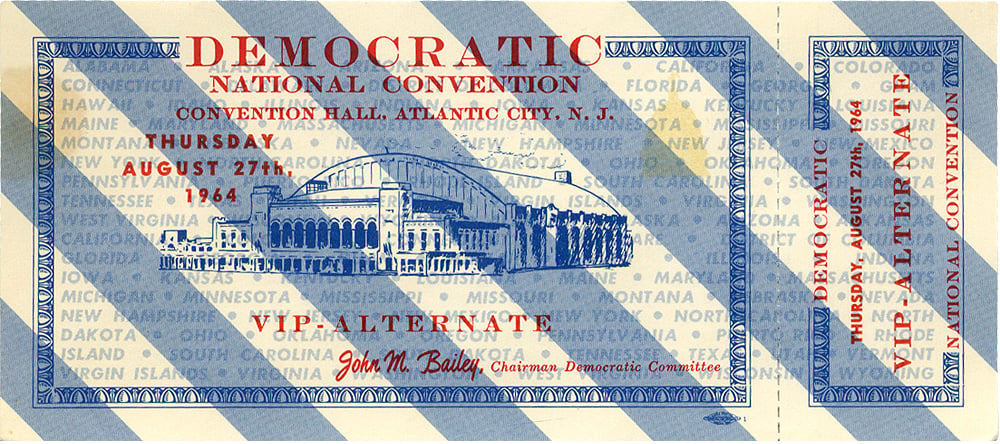By William Kelly
As we approach the Republican and Democratic national conventions, when party candidates are selected for the election, it is appropriate to reflect on the 1964 Democratic National Convention held 60 years ago in Atlantic City.
While it was party politics at the time, it has since faded into history, and in reflection we can see what effect it had on the city and the nation.
The decision to hold the convention in Atlantic City was made at the 1960 Democratic Convention in Los Angeles, where Massachusetts Sen. John F. Kennedy was nominated to serve as the party’s candidate. But the story begins even before then.

It was during the Eisenhower administration when the CIA, under Allen Dulles, recruited three Mafia bosses – John Rosselli, Sam Giancana, and Santo Trafficante, to assist them in their attempts to oust Cuban leader Fidel Castro by murdering him. When Castro took power and closed the mob-owned casinos, the mob began investing in hotel-casinos in Nevada.
Sam Giancana of Chicago used his friend Frank Sinatra to serve as a front man to buy controlling interest in the Cal-Neva Lodge and casino in Northern Nevada, which straddles the California border. The state line ran through the building and the casino was on the Nevada side.
To run the casino, Sinatra turned to a friend and associate he could trust – Skinny D’Amato, owner of the 500 Club in Atlantic City, where Sinatra often performed. Skinny took over the casino at the Cal-Neva, and his family kept “the Five” operating while he was away.

Sinatra was also a good friend, cigar-chomping and drinking buddy with Sen. Kennedy, and a big supporter when he ran for president, providing him with the song, “High Hopes,” which became Kennedy’s campaign theme song.
The West Virginia primary election was big that year because it was a mainly Protestant state and an important test for the Irish-Catholic Kennedy. In support of Kennedy, Giancana and Sinatra sent D’Amato into West Virginia with suitcases full of cash. The West Virginia Sheriff’s Association held their annual convention in Atlantic City and frequented the 500 Club, so they knew Skinny and the sheriffs controlled the polling places.
Kennedy won the tight West Virginia primary against Sen. Hubert Humphrey, which helped eliminate religion as an issue in the election.

Robert F. Kennedy
When Kennedy was made the Democratic Party candidate in Los Angeles, he selected Lyndon Baines Johnson (LBJ) as his running mate and vice presidential candidate, against the wishes of his brother Bobby. That’s when they also decided to hold the 1964 convention in Atlantic City, thanks to a lobbying effort by Atlantic City political boss H. “Hap” Farley, D’Amato and Sinatra. With the anticipated renomination of President Kennedy, it was expected to be a grand occasion.
After Kennedy won a close election in 1960 over Richard Nixon, JFK asked Frank Sinatra to arrange the entertainment for the Washington, D.C. inaugural parties and balls. Sinatra also introduced Kennedy to Judyth Campbell, who was also involved with John Rosselli and Sam Giancana. She even visited JFK at the White House on occasion.
FBI Director J. Edgar Hoover learned of the arrangement. He met with then Attorney General Robert F. Kennedy, and informed him, thus ending JFK’s association with Judyth Campbell and Sinatra.
The Nevada Gaming Commission also learned of Giancana’s control over the Cal-Neva Lodge. Giancana not only lost his interest in that casino, but RFK was cracking down on the mob nationwide, calling it “the enemy within.”
Giancana thought he was playing it safe with Sinatra being tight with the president, his deal with the CIA to help them kill Castro, and his role in securing the West Virginia primary and nomination, but he was wrong.
When President Kennedy went to Dallas, Texas in November of 1963, everything changed. JFK was killed, and LBJ automatically became president. To investigate the crime LBJ appointed the Warren Commission, led by Supreme Court Justice Earl Warren, which concluded that one man, Lee Harvey Oswald, acting alone, was responsible for the assassination.

A month later the Democrats convened in Atlantic City, but instead of renominating JFK, it was LBJ who was to remain the party’s candidate. RFK was scheduled to make a tribute speech in honor of his fallen brother to begin the proceedings, but it was moved to the end. Some believe it got moved because LBJ was afraid someone would place Kennedy’s name in nomination. He would sweep the delegates and be named the party candidate.
LBJ was also afraid that RFK had his hotel room bugged, so instead he secretly stayed at the beachside Ventnor home of Carroll Rosenbloom, owner of the NFL’s Baltimore Colts football team. He died mysteriously while swimming alone in Florida in 1979.
As his running mate and vice presidential candidate, LBJ named Hubert Humphrey, the liberal senator from Minnesota, whom JFK had defeated in the critical West Virginia primary.
On Aug. 27, on the last night of the convention, when it was Bobby’s turn to take the podium, the former president’s widow, Jackie Kennedy, slipped a piece of paper into RFK’s hand. RFK received a standing ovation that lasted an unprecedented 15 minutes, then gave a fitting tribute to JFK, during which he read a line from the paper Jackie had given him, from Shakespeare’s “Romeo and Juliet”.
“When he shall die take him and cut him out into stars and he shall make the face of heaven so fine that all the world will be in love with night and pay no worship to the garish sun.”
Bobby continued: “I realize that as individuals, and even more important as a political party and as a country, we can’t just look to the past, we must look to the future.”
That week would be the last time Frank Sinatra performed at the 500 Club, though he would remain lifelong friends with Skinny D’Amato and served as a pallbearer at his funeral.
LBJ’s teenage daughters stayed behind in Atlantic City to see The Beatles perform the following weekend at the same Convention Hall, now Boardwalk Hall, where the convention was held.
Unfortunately the national and international press and media gave Atlantic City a black eye, as they truthfully reported that the city’s century-old and aging hotels were shabby, unkempt, had leaking pipes and were in dire need of repair. It would be more than a decade before the casino legislation would breathe new life into the old Atlantic City.
And now there’s Kennedy Plaza in front of Boardwalk Hall, where concerts are performed, and there’s a beautiful bust of JFK and sculptures by the renowned Evangelos Frudakis, as a memorial to what might have been, but never was. Billkelly3@gmail.com













